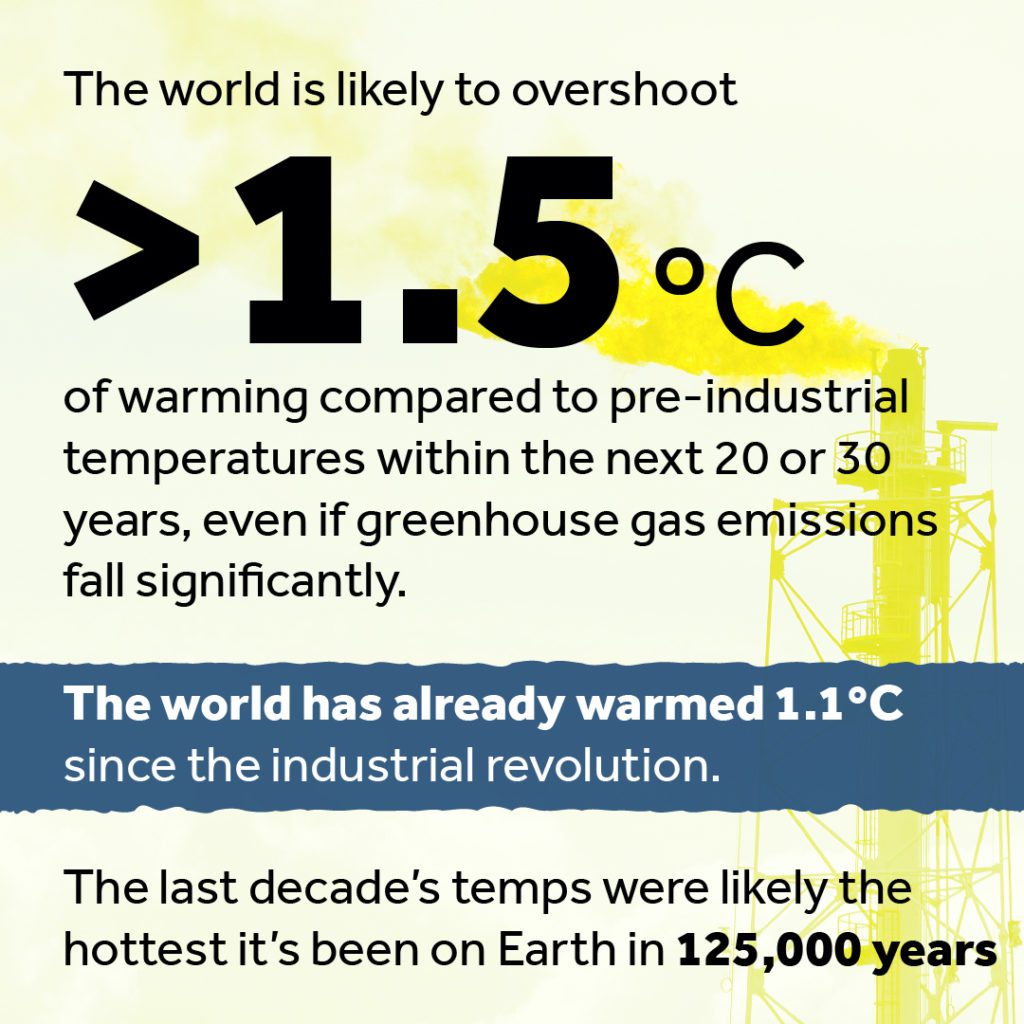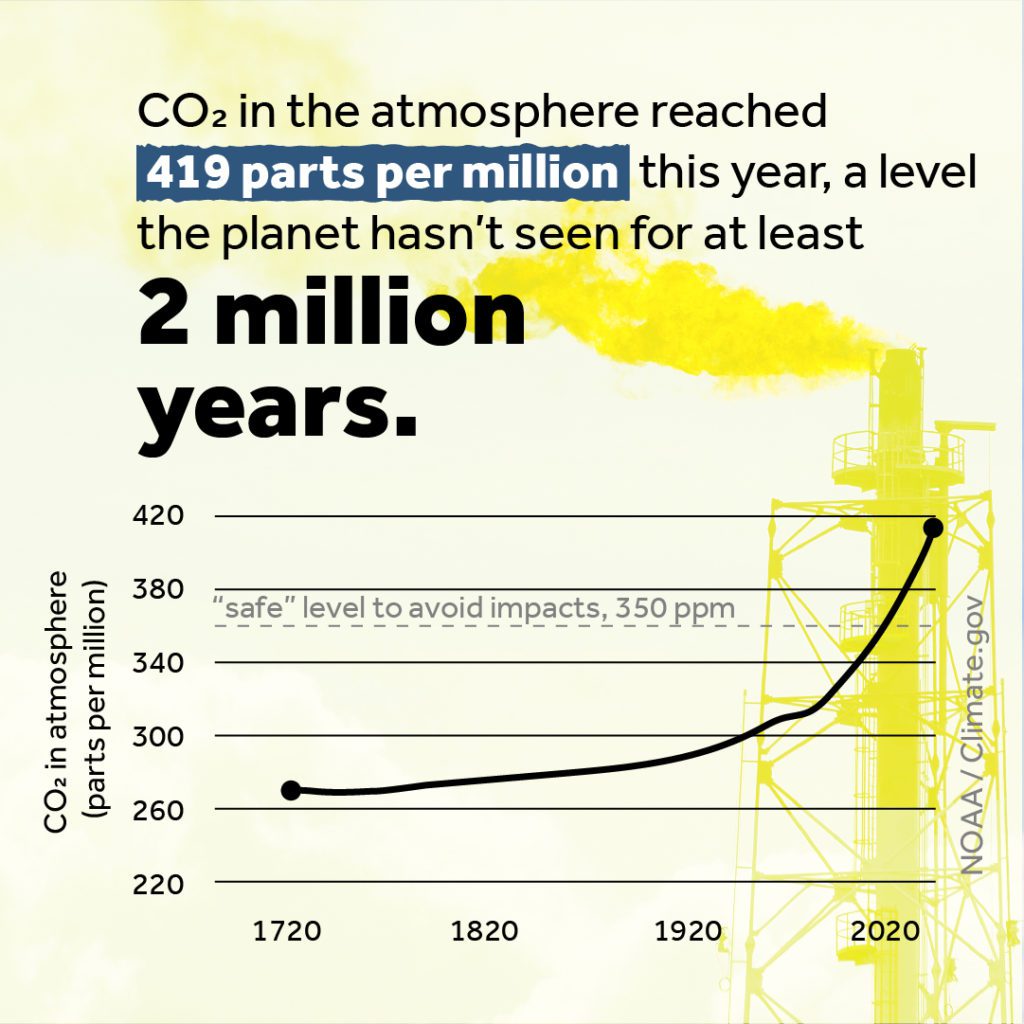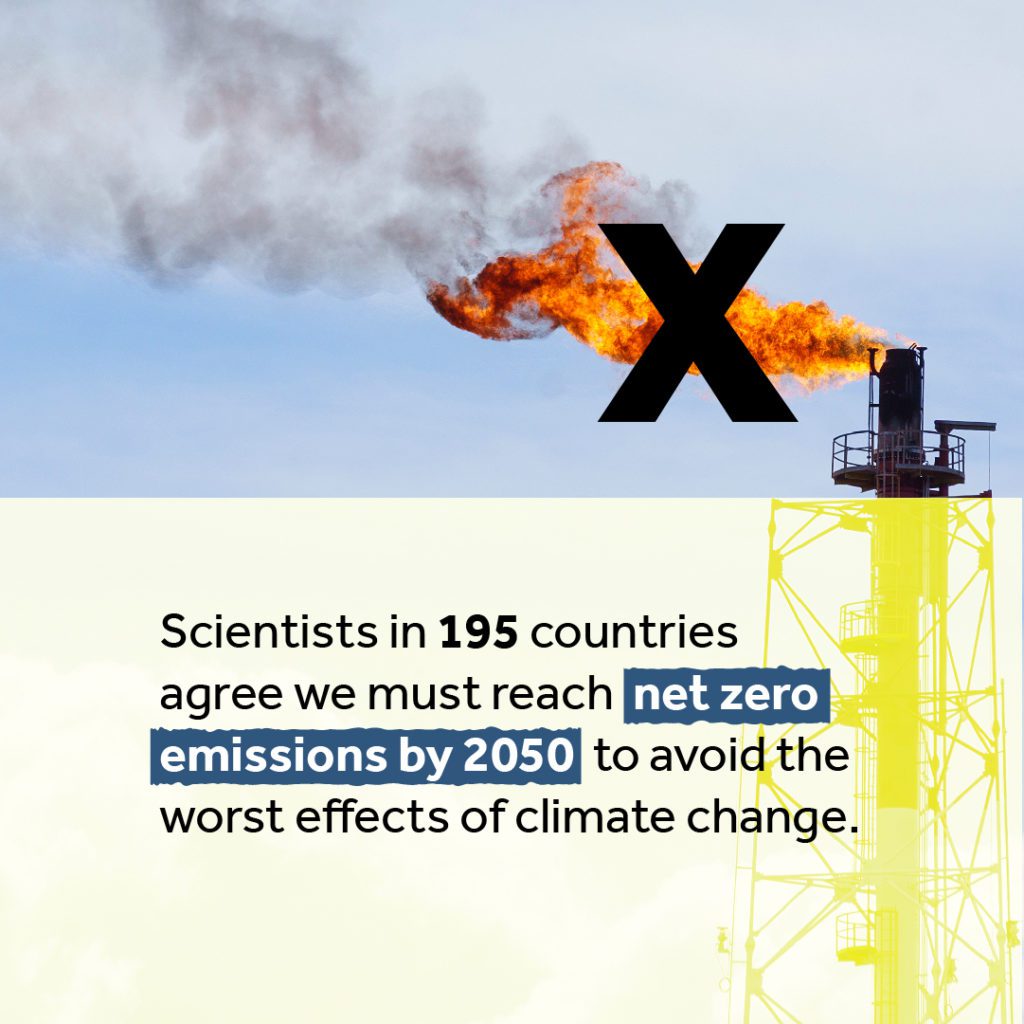If you’re new to the climate change club, let us bring you up to speed on the Intergovernmental Panel on Climate Change (all the cool kids call it the IPCC).
The IPCC is the United Nations’ climate science research group that pulls together big reports every couple of years that basically tells us how screwed we are in terms of climate change. And the 2021 IPCC report, which dropped yesterday, wasted no time mincing words: We’re screwed. Maybe.
To understand what it means to be scientifically screwed (okay, our words, not the IPCC’s) it’s important to understand the importance of the number 1.5.
1.5 degrees Celsius is the amount of warming scientists believe the Earth can withstand before big natural systems begin to cross tipping points, sending the world as we know it into major climate chaos.

Already, global temperatures have increased by 1.1 degrees Celsius since the industrial revolution. And with humans creating about 2.6 million pounds of carbon dioxide per second—helping us reach the not-so-glorious record-high 419 parts per million CO2 atmospheric concentration—it’s going to be pretty tough not to exceed the other .4 degrees. In fact, the report warns that the world is likely to go over 1.5 degrees Celsius within the next 20 – 30 years, even if we immediately bring emissions down. A hotter, more dangerous future is essentially unstoppable. At least in the near term.
This is the “we’re screwed” part. For the first time ever, the report concluded that it is “unequivocal” that humans are causing climate change and that it’s “virtually certain” that extreme heat events have increased in frequency and intensity because of humans.

Remember that PNW heatwave back in June that killed at least 129 Washingtonians and cooked billions of sea creatures off of our coasts? At 1.5 degrees Celsius of warming, that kind of heat wave is expected once every 10 years. At 4 degrees of warming, it’s expected annually. And based on expert policy analysis, we’re globally on track for at least 3 degrees Celsius of warming by 2100.

That doesn’t even include the FEET of sea level rise, longer and hotter wildfire seasons, melting glaciers and other hazards that will impact the Northwest for centuries to come.
The report also concluded that methane (a greenhouse gas 80 times more potent than CO2) is at its highest atmospheric level in 800,000 years because of human activities like agriculture and oil and gas production. (Though, because it’s more potent, it’s also a great place to cut emissions quickly).
So what’s the “maybe we’ll be okay” part of this story? Humanity could still prevent this kind of catastrophic warming—we just need to stop adding emissions to the atmosphere by about 2050. To do that, we need a rapid shift away from fossil fuels starting, oh, yesterday. But tomorrow will do.

That’s where you come in. For almost 40 years, RE Sources has been hard at work shifting the Northwest away from fossil fuels and protecting this place we love. Whether that’s helping to prevent a massive coal export terminal, regulating local fossil fuel refineries, or ensuring climate change is the backdrop of local watershed solutions, we know what needs to be done to meet the moment.
With a little (okay, maybe A LOT) of courage, we know we can transition away from fossil fuels in time to ensure we have a planet worth saving. Sign up for our Climate Activist Meetings for more ways to take action, and make sure you’re receiving our newsletter for all of the ways you can help your community meet the moment. Live in Bellingham? Sign our petition to support city officials in the transition away from methane use.
_____________________________________________________________________________________
For the true nerds, more resources and reading:
- IPCC Sixth Assessment Report
- New York Times: A Hotter Future Is Certain, Climate Panel Warns. But How Hot Is Up to Us.
- VOX: The devastating new UN report on climate change, explained
- Seattle Times: Landmark climate report promises massive effects for western U.s., Seattle
- The Guardian: World’s climate scientists to issue stark warning over global heating threat
- The Atlantic: It’s Grim
